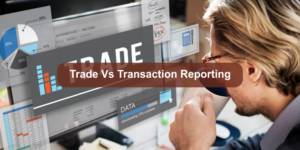
Blog
American Depositary Receipts
AMERICAN DEPOSITARY RECEIPTS:
INTRODUCTION:
American Depositary Receipts (ADRs) are negotiable investment securities provided by a US bank, covering a limited amount of shares of a foreign business listed on US capital markets. Before the launch of ADRs in 1927, investors in the US faced a number of obstacles in seeking to invest in foreign companies’ stocks. American investors could only buy securities in international markets, which meant struggling with currency exchange rates and regulatory gaps in foreign jurisdictions. They had to get familiar with the various laws and risks involved with investing in businesses without US involvement. However, with ADRs, investors can diversify their investments by investing in international companies without having to open a global brokerage account.
Get complete CFA Online Course by experts Click Here
HOW DO ADRS WORK?
Investors willing to invest in American Depositary Receipts can purchase them from banks/dealers. Banks/dealers receive ADRs by purchasing already released ADRs on the US capital markets or by generating a new ADR. Investors who buy ADRs will be paid dividends in US dollars. The international bank pays dividends in its native currency and the dealer/banks distribute dividends in US dollars on the basis of currency exchange charges and international taxes. This makes it possible for US investors to invest in foreign firms without caring about currency exchange rates.
FEATURES :
- American Depository Receipts are listed on US Stock Exchange.
- A single American Depositary Receipt represents more than just a share.
- ADR does not provide the right to vote.
- ADR’s are issued in US denominations that is dollars.
- Its shares are listed on the New York Stock Exchange.
- ADR’s are being undertaken to acquire foreign capital.
TYPES OF ADRS:
- Sponsored ADRs: For the sponsored ADR, a foreign corporation selling securities to the public enters into an arrangement with the US depositary fund to offer its stock on US markets. The US bank is liable for the accounting, selling, and delivery of securities to the public, payment of dividends, etc. Sponsored ADRs can be published on the U.S. stock exchanges.
- Unsponsored ADRs: A un-sponsored ADR shall be formed by brokers/dealers without the assistance of the foreign company issuing the securities. Non-sponsored ADRs are traded on U.S. over-the-counter exchanges without requiring registration with the Securities and Exchange Commission (SEC). Until 2008, all brokers and dealers traded in ADRs were forced to send a formal order before they were permitted to trade in the United States. The 2008 amendment to the SEC provided an exception to international issuers who meet other regulatory requirements. Non-sponsored ADRs are sold only on over-the-counter exchanges.
Get complete FRM Online Course by experts Click Here
EXAMPLES :
- Reliance Industries, an Indian company trades on both Indian and New York Stock Exchanges. Thus, for an American investor, it would not be possible to invest in the Indian company directly. Thus, through American Depository Receipts, the investor in America can easily invest in Reliance Industries. Reliance Industries is listed on the American Stock Exchange only after complying with the required rules and regulations.
- The ratio of HDFC Bank = 3:1 means that 3 HDFC shares are equivalent to one ADR. For eg, if Saurav wants to buy ADRs from HDFC Bank Ltd., the current price of which is $151.73, he will test if ADRs are priced reasonably. Assuming that the present exchange rate is Rs.75.30: $1.00, the price of three securities of HDFC Bank on the Indian stock exchange will be about Rs.11,425 ($151.73 * 75.30). As a result, a single share should be exchanged at Rs 2,342. But, the market for the ADR often places a price premium/discount on it. Saurav should be able to afford to pay the ADR premium as the bank’s ADR is sold at a premium.
ADVANTAGES OF AMERICAN DEPOSITORY RECEIPTS :
Following are some of the advantages of ADRs:
- The American investor can invest in foreign companies which can fetch higher returns for him.
- The companies located in foreign countries can get registered on the American Stock Exchange and have their shares trades in two different countries.
- The benefit can be gained from the currency fluctuation.
- Investments in overseas firms can be easier since there are no limits on investments in ADRs.
- ADR simplifies tax calculations. Trading in shares of foreign companies in ADR will result in taxes under US jurisdiction and not in the company’s home country
- Pricing of shares of overseas companies in ADR is usually cheaper; providing an additional benefit to investors.
- The shares listed on the exchange have more liquidity and thus give an advantage to the investor.
- It also brings credibility to the companies listed on the American Stock Exchange.
- It results in lower floatation costs by trading shares while rising the profit margin.
- The investors get a large and scattered variety of shares and shareholders and thus an opportunity to have a diversified portfolio.
Get complete CFA Online Course by experts Click Here
DISADVANTAGES OF AMERICAN DEPOSITORY RECEIPTS :
Following are the disadvantages of ADRs:
- The number of choices for investing in international companies is restricted. Just a few businesses have the need to sign themselves with ADR.
- Investment in businesses opting for ADR often becomes illiquid because creditors continue to keep them in order to produce decent returns in the long term.
- While ADR transactions take place in US dollars, they are still exposed to the foreign-exchange fluctuation effect.
- The charges for the whole ADR process are mainly passed from foreign firms to customers.
-
Any violation of compliance can lead to strict action by the Securities Exchange Commission. However, Unsponsored ADRs may not be SEC-compliant.
- ADRs could face double taxation.
Authors: Bhagyashree Chandak and Abhay Kanodia
About the Authors:
Bhagyashree aspires to become a research analyst and earn and use the best of my knowledge.
Abhay is an undergraduate student from the Birla Institute of Technology and Sciences, Pilani(BITS Pilani). He is exploring the fields of finance and data analytics and its applications in other different domains.
Related:
The Eurodollar Futures Markets






